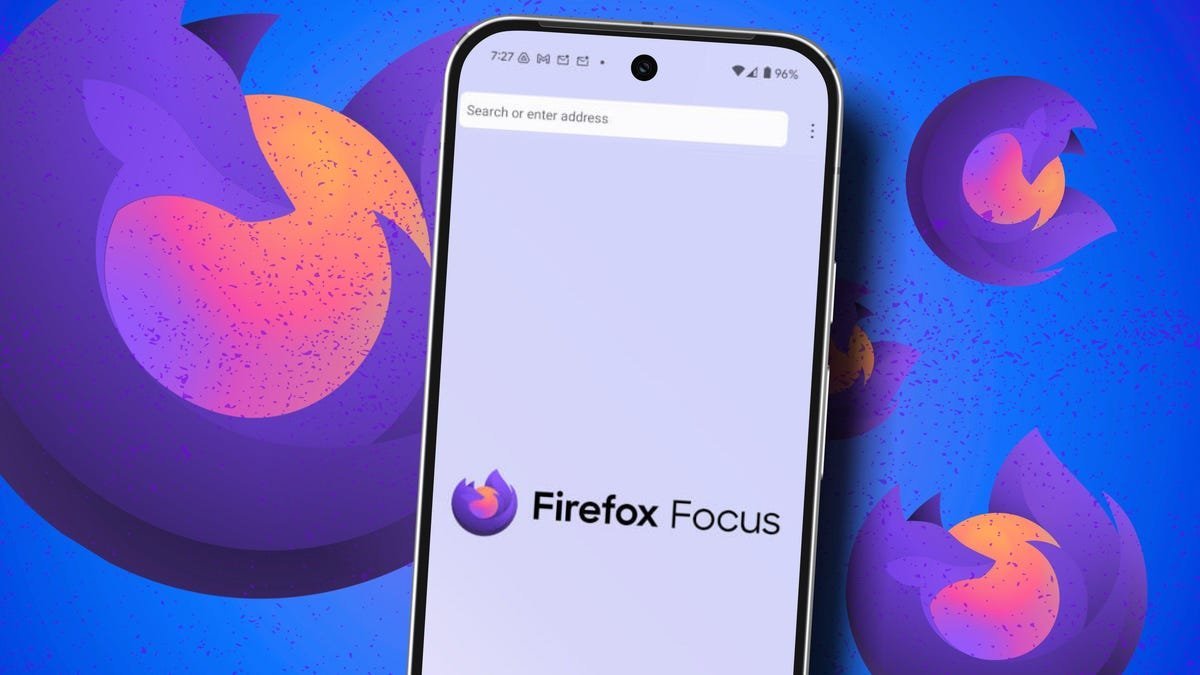After years of browser dissatisfaction, tech writer Jack Wallen embraced Firefox Focus as his default mobile browser in just 10 minutes, captivated by its unparalleled privacy features and lightning-fast performance. This stripped-down, security-first alternative blocks trackers and bloat while delivering a streamlined user experience, signaling a shift toward user-centric browsing. For developers and security-conscious users, it represents a potent tool in the fight against data exploitation.
Firefox Focus: How a 10-Minute Test Became a Privacy Revelation

Main image: Firefox Focus offers a secure, minimalist browsing experience for mobile users. (Credit: Jack Wallen / Elyse Betters Picaro / ZDNET)
For developers and tech professionals drowning in bloated browsers, Firefox Focus emerges as a revelation—a mobile-first application that prioritizes privacy and performance over unnecessary features. As detailed in Jack Wallen's ZDNET review, this Mozilla offshoot transforms browsing into a lean, secure operation, stripping away distractions while fortifying defenses against pervasive tracking. Unlike traditional browsers cluttered with bookmarks, news feeds, and suggested sites, Focus presents only a URL bar and menu on its start page. This intentional minimalism isn't just aesthetic; it's foundational to its mission of speed and user protection.
The Privacy Engine: What Makes Firefox Focus Stand Out
At its core, Firefox Focus is engineered for digital self-defense. Its Privacy and Security settings offer granular control, allowing users to block:
- Ad trackers
- Analytic trackers
- Social trackers
- Other content trackers
- Web fonts (remote fonts)
- JavaScript
- Cookies
- Potentially dangerous sites
Additional safeguards include fingerprint-lock app access, stealth mode, and HTTPS-only browsing. As Wallen notes, this comprehensive blocking doesn't just enhance security—it accelerates page rendering by eliminating resource-heavy elements before they load. For developers, this highlights a critical trend: efficiency and privacy are increasingly intertwined, with Focus serving as a benchmark for lightweight, secure design.

Firefox Focus settings showcase robust privacy controls, including tracker blocking and HTTPS enforcement. (Credit: Jack Wallen / Elyse Betters Picaro / ZDNET)
Performance and Practicality: Why Tech Users Are Switching
Wallen's testing revealed blazing-fast page loads, attributing this to Focus's lack of feature bloat and aggressive blocking. In real-world terms, pages render quicker because trackers and scripts are neutralized at the source—a boon for mobile users on limited data plans or slower networks. The browser defaults to Google search but supports alternatives like DuckDuckGo, emphasizing flexibility without complexity. For engineers, this performance underscores a broader principle: in an era of surveillance capitalism, tools that default to privacy-by-design can outperform established players. As Wallen asserts, "Firefox Focus is truly a lightweight browser that feels as capable as a typical app."
Beyond the Hype: Implications for the Tech Ecosystem
The rise of browsers like Focus signals a growing demand for user-first solutions in mobile computing. With cyber threats escalating and data privacy regulations tightening, developers must consider how minimalist, security-focused designs can attract disillusioned users. Focus's success—Wallen made it his default browser almost immediately—proves that sacrificing bells and whistles for core functionality resonates deeply. As Mozilla refines this model, it pressures competitors to innovate beyond superficial updates and address fundamental vulnerabilities. For the tech community, adopting such tools isn't just about personal security; it's a statement against the normalization of data exploitation.
In Wallen's journey from skepticism to advocacy, Firefox Focus represents more than a convenient app—it's a manifesto for what browsing should be: fast, private, and undistracted. As he concludes, giving it ten minutes might just redefine your mobile experience.
Source: Adapted from Jack Wallen's original review on ZDNET.

Comments
Please log in or register to join the discussion